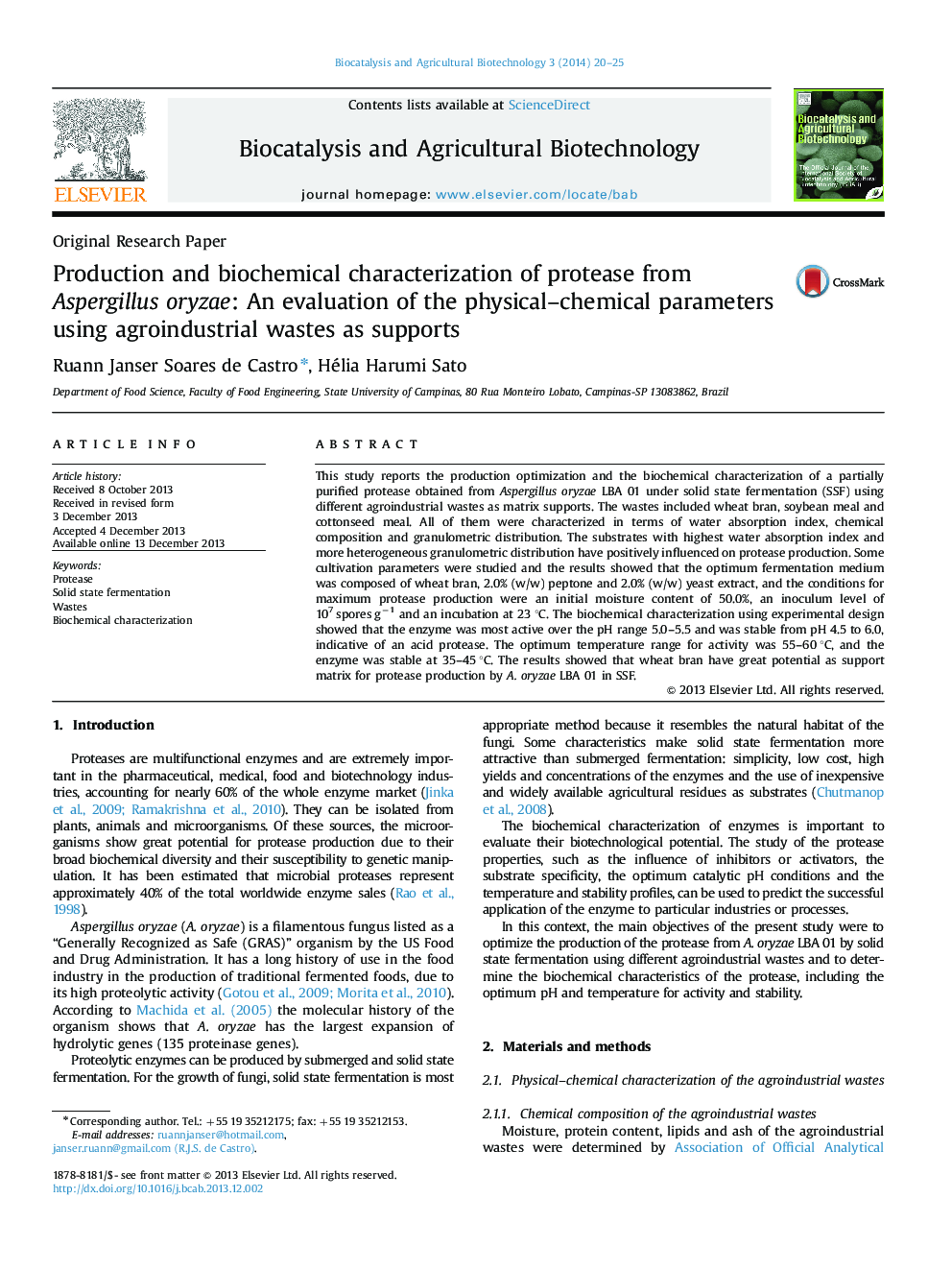| Article ID | Journal | Published Year | Pages | File Type |
|---|---|---|---|---|
| 2075414 | Biocatalysis and Agricultural Biotechnology | 2014 | 6 Pages |
This study reports the production optimization and the biochemical characterization of a partially purified protease obtained from Aspergillus oryzae LBA 01 under solid state fermentation (SSF) using different agroindustrial wastes as matrix supports. The wastes included wheat bran, soybean meal and cottonseed meal. All of them were characterized in terms of water absorption index, chemical composition and granulometric distribution. The substrates with highest water absorption index and more heterogeneous granulometric distribution have positively influenced on protease production. Some cultivation parameters were studied and the results showed that the optimum fermentation medium was composed of wheat bran, 2.0% (w/w) peptone and 2.0% (w/w) yeast extract, and the conditions for maximum protease production were an initial moisture content of 50.0%, an inoculum level of 107 spores g−1 and an incubation at 23 °C. The biochemical characterization using experimental design showed that the enzyme was most active over the pH range 5.0–5.5 and was stable from pH 4.5 to 6.0, indicative of an acid protease. The optimum temperature range for activity was 55–60 °C, and the enzyme was stable at 35–45 °C. The results showed that wheat bran have great potential as support matrix for protease production by A. oryzae LBA 01 in SSF.
